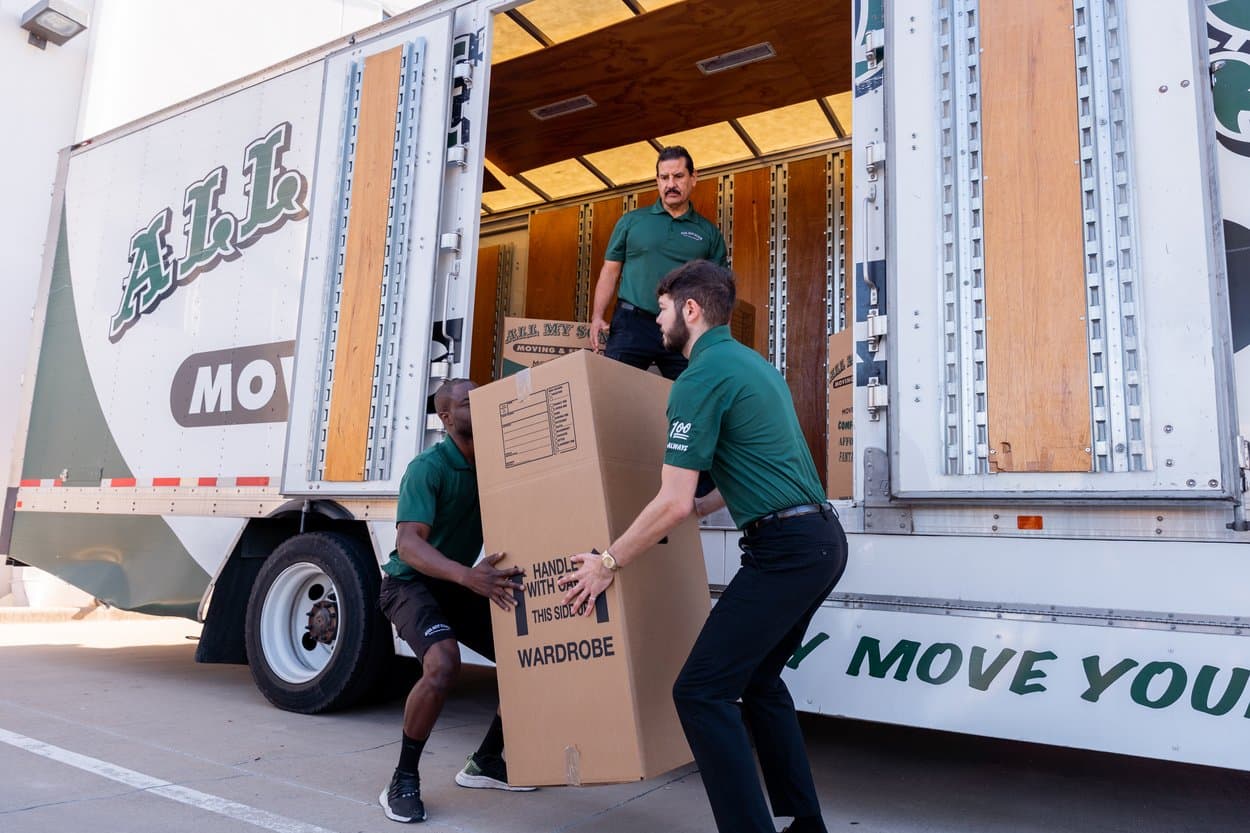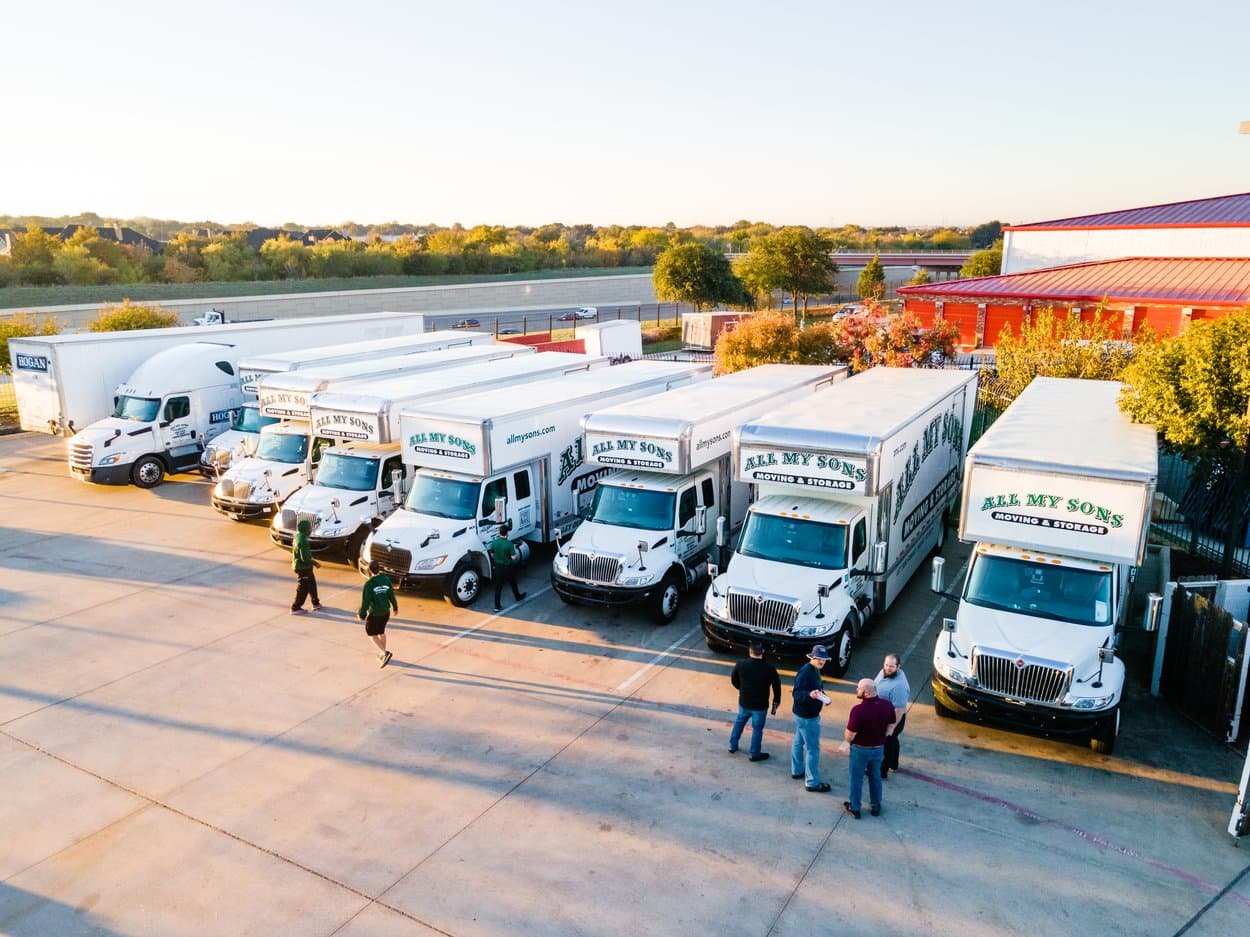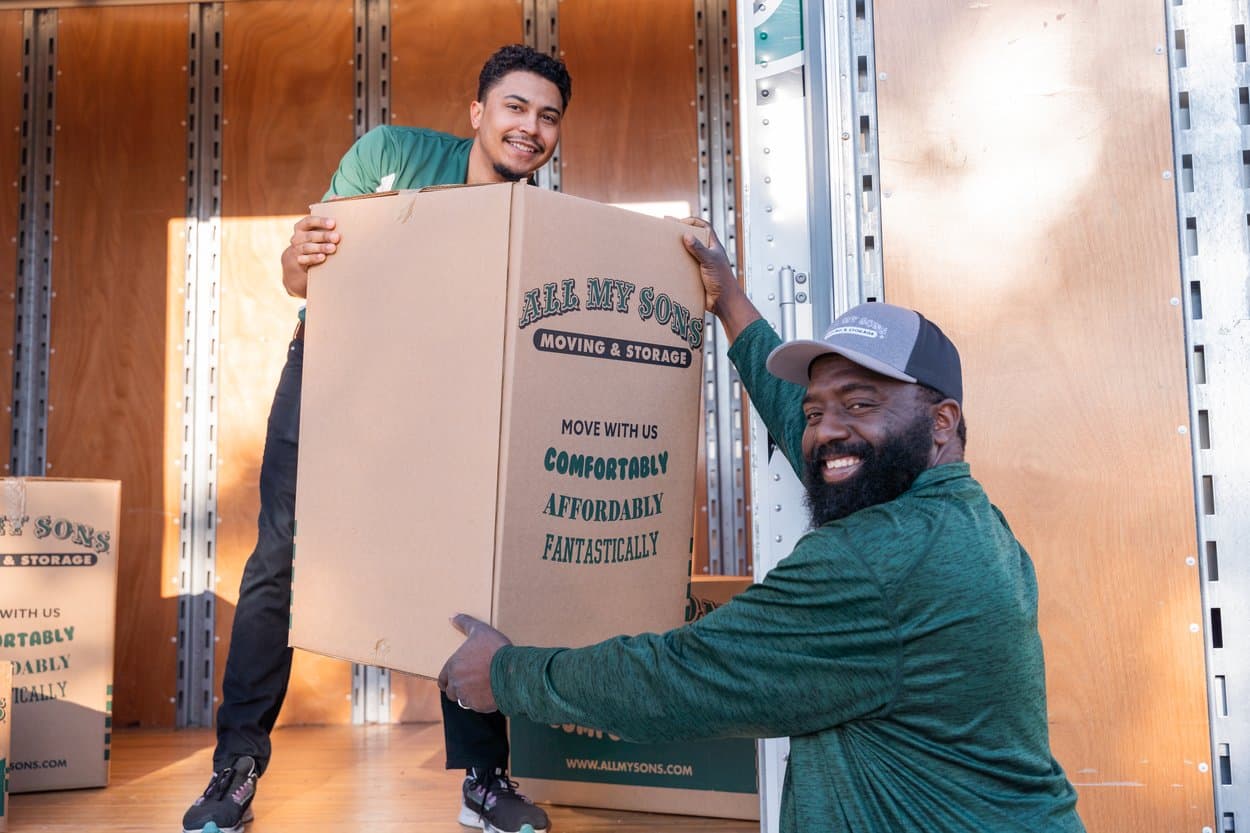Getting Ready for Your Local Move
How do you prepare for a move with one week before moving day? Let All My Sons Moving & Storage help.
The day of your local move approaches and you are likely knee-deep in your moving checklist, marking off those final boxes. Things are getting down to the wire now and you might feel overwhelmed or anxious. Take a deep breath and remember that preparation is key to keeping things running smoothly on your move day.
With more than 30 years of experience helping businesses and families relocate, All My Sons Moving & Storage understand the stress of preparing for a move all too well. We have compiled a series of moving resources to help you get started on preparation for your local move. Now that you have a week left, there are five crucial final steps to remember.
Mark these steps down on your moving checklist and make sure to get them checked off the week before your moving day.
Step 1: Confirm Your Moving Details
If you have not already scheduled your move with your movers, you should do so early in the week before your move date. Once the reservation is locked in, be sure to call and confirm with your movers. Now is the time to inform them of any special instruction, last-minute changes, or other details they need to know.
Some of your items to move might need additional care. Be sure to check with your moving company and find out what they will and won’t move according to your contract and coverage. Review the terms of your moving insurance and ask any questions that arise.
For those families moving who have pets or small children, please double-check on your arrangements for their care while you are moving. In the controlled chaos of the move, a pet or small child could get underfoot and injured or lost if they do not have a special quiet safe zone to stay in or a designated caregiver off-site.
Once the details for moving day are confirmed, you are free to get down to the business of packing.
Step 2: Finish Packing the Non-Essentials
Book, collectibles, decorations, and kitchen utensils! How did you accumulate so much stuff in life? Hopefully by the week before your move date you’ve already culled the herd and made the necessary downsizing, so everything that’s left in the house is the stuff that’s coming with you.
Even among the items coming with you, there is a certain hierarchy of need. Start your packing with the non-essentials. These are the items that could potentially sit in a box for a few days or a few weeks depending on how long it takes you to overcome your moving procrastination. The items you use daily and will need almost immediately upon arrival should be separated.
While you are sorting through your belongings, grab your important documents like birth certificates, medical records, and rental contracts. Make sure these items are in a secure and easily accessible place, especially if they are required for your move.
With the essentials separated from the non-essentials, you can commence packing. Pack your items room by room, label all your boxes clearly with their content and the rooms they belong to and find an open space to store the boxes until it is time to load them on your moving truck. For more tips on packing please see our Room-by-Room Packing Guide.
Alternatively, if you’d like to free up your plate for other moving tasks, you can ask All My Sons Moving & Storage about our professional packing services. Have the experts handle all your packing needs and rest assured your belongings will be safe and secure for their local move.
Step 3: Provide Notice of Your Move
With the packing wrapping up and the details confirmed, it’s time to start alerting others to your imminent move.
Legally, you must update your driver’s license address and vehicle registration address within 30 days of your move. If you would like you mail forwarded, you can file a change of address form with USPS and complete it either online or in person.
Call your service providers for internet, electricity, and other utilities and ensure your service is scheduled for disconnection or transfer.
Let any doctors you have seen or will continue to see know that your address is changing. This ensures they can send any unpaid bills or reminders about appointments to you and not the next tenants of your last place.
Next, change your address with your employer and any financial institutions you use like banks or credit cards. Update your address for any magazine or box subscriptions, and if your address is saved on an online retailer you use often be sure to update those before you make your next purchase.
Finally, let your friends and family know that you are moving. You can send a moving announcement in the form of a postcard or ecard, or call and message your friends individually. You don’t want to miss any Christmas cards or special announcements.
Step 4: Prepare Your Home for Moving Day
With the arrival of your movers quickly approaching, start preparing your home to accommodate them. Make sure there are pathways from room to room and that your hallways and doorways are clear of clutter. When your movers can navigate through your home quickly, you can streamline the moving process and minimize the chance of damage or accidents.
Start disassembling the non-essential furniture, and be sure to save any screws, bolts, or small hardware pieces in a labeled bag. You can tape these bags to the corresponding furniture parts or pack them into a labeled box for the room. Just be sure that you remember or write down where to access them again when it comes time to set the furniture up in your new place.
If your refrigerator or freezer are coming with you, then use up as many perishables as possible in the week leading up to your move. Roughly 24 hours before your move, defrost your fridge or freezer to ensure there are no unexpected messes or leaks when it comes time to move.
Now that rooms are starting to look clearer and emptier, you can get a head-start on your post-moving cleaning. Dust, sweep, and vacuum the areas that have hidden beneath and behind furniture. This leaves the room in good condition for its next occupants, and some landlords may require you do an extensive cleaning before you leave your last home behind.
Step 5: Pack Essentials and an Emergency Bag
One of the last steps you will take before your local move is to pack your essentials. These are the items you will need to unload and access immediately as soon as possible. Some possible examples include cooking utensils, toilet paper, towels, or electronics you use daily. Put these essentials in a separate box to be loaded last and unloaded first.
It’s also important to pack an emergency bag in case unexpected situations arise during your move. This bag should include your basic toiletries, medications, a change of clothes, and IDs plus any documents you need to access during your move. Keep spare chargers, snacks, a first-aid kit, and some basic tools like a screwdriver or utility knife in this bag as well. You should also have a stash of cleaning supplies on hand to finish sprucing up your old place before you leave and to take care of any minor issues at your new place when you arrive.
Having your essentials separate and a go-to emergency bag means that even if the boxes take awhile to unpack, you will have the things you need to stay comfortable and handle any surprises as you set up your new home.
Ready For Your Local Move
The pieces should be lining up now that your move date is within reach. In tackling these essential tasks now, you can avoid and alleviate much of the stress that moving can bring. Careful preparation is the key to avoiding that anxious last-minute scrambling. By packing well and planning ahead, you can ensure you maintain control, remember important details, and breathe easy in your new home.
When you’re ready to make your local move, call the experts at All My Sons Moving & Storage to do all the heavy lifting so you can focus on what really matters. Our moving specialists can tailor our services to meet your needs and budget. Go online for a free quote or call your local All My Sons to tell us about your upcoming move.
Quick Moving Tips

How to Pack Clothes for a Move
All My Sons Moving & Storage provides professional packing services and has some special tips for packing your clothing for moving.

How to Make a Seamless Business Move
Tips for pulling off your business move from the experts in commercial moving services at All My Sons Moving & Storage.

How to Pack a Computer for a Move
Here are 5 steps that should help you get your computer secured for the move.


